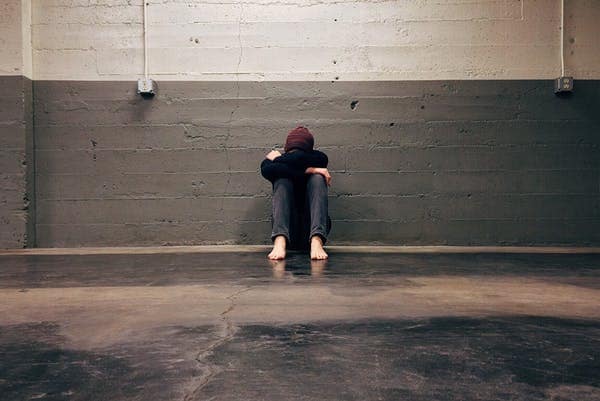Everything you should know about anxiety and depression.

Symptoms of Anxiety and Depression.
Anxiety and depression are two of the most common mental health disorders in the United States. They can have a major impact on your life, making it difficult to work, study, or even enjoy time with friends and family. Symptoms of anxiety and depression can vary from person to person, but there are some common signs to look out for. If you’re feeling overwhelmed by anxiety or sadness, struggling to concentrate or make decisions, withdrawing from social activities, or experiencing changes in your sleeping or eating habits, it’s important to reach out for help. An anxiety or depression disorder can be daunting to face alone, but with treatment, you can start to feel better and regain control of your life.
Origin of Anxiety and Depression.
While the exact causes of anxiety and depression are not fully understood, there is evidence that they are caused by a combination of biological, psychological, and social factors.
Biological factors that may contribute to anxiety and depression include an imbalance of certain brain chemicals, a family history of mental disorders, and medical conditions such as thyroid problems or chronic pain. Psychological factors include negative thinking patterns, low self-esteem, and exposure to traumatic or stressful events. Social factors include isolation, poverty, and loss of social support.
How do anxiety and depression affect the individual?
Anxiety and depression often run in families, suggesting that there is a genetic component to these disorders. Additionally, imbalances in certain brain chemicals have been linked to anxiety and depression. These chemicals include serotonin, norepinephrine, and gamma-aminobutyric acid (GABA). Finally, stressful life events or ongoing stress can trigger anxiety and depression in susceptible individuals.
While the causes of anxiety and depression are complex, treatments for these disorders be effective in reducing symptoms and helping people to manage their condition. If you or someone you know is struggling with anxiety or depression, seek professional help from a mental health provider. With proper treatment, it is possible to live a healthy and fulfilling life.
How do anxiety and depression affect your family?
Anxiety and depression can take a toll on not just the person suffering, but also their family and loved ones. Anxiety and depression can cause people to withdraw from social activities, isolate themselves, and become less involved in things that they once enjoyed. This can put a strain on relationships and make it difficult for family members to connect with the person suffering. Additionally, anxiety and depression can lead to financial problems, as the person suffering may be unable to work or may need to take time off work for doctor’s appointments or other treatment. The anxiety and depression may also cause the sufferer to turn to unhealthy coping mechanisms, such as alcohol or drugs, which can further damage their relationships and health. Ultimately, anxiety and depression can have a profound impact on the whole family.
Treatments.
Anxiety and depression are treatable conditions. A variety of treatments are available, including medication, counseling, and lifestyle changes. With treatment, most people with anxiety and depression can improve their symptoms and live relatively normal lives. These include genetic predisposition, brain chemistry, and environmental stressors. For many people, anxiety and depression are the results of a combination of these factors.
According to the National Institute of Mental Health, anxiety disorders affect 18.1% of adults, while depression affects 6.7%. While there are many different types of anxiety and depression, the most common anxiety disorders include generalized anxiety disorder, social anxiety disorder, and panic disorder. The most common depressive disorders include major depressive disorder and persistent depressive disorder. While there are many different treatments available, it’s important to work with a mental health professional to find the right one for you.
Cognitive behavioral therapy (CBT) is a type of therapy that can be effective for both anxiety and depression. It helps you to identify and change negative thought patterns, which can lead to improvements in mood and anxiety symptoms. Meditation and relaxation techniques can also help manage anxiety and depression. In addition, medication may be recommended for some people. Antidepressants can be effective in treating the symptoms of depression, while anxiety medications can help to reduce anxiety levels. If you’re struggling with anxiety or depression, there are many treatment options available. Work with a mental health professional to find the best plan for you.
While there are many different treatment options for anxiety and depression, some of the most common include medication, therapy, and lifestyle changes. Medication can help to stabilize mood swings and regulate neurotransmitter levels. Therapy can provide support and guidance through difficult times. Lifestyle changes, such as exercise, relaxation techniques, and a healthy diet, can also help to improve symptoms. anxiety and depression are treatable conditions, and with the right treatment plan, people can lead happy and fulfilling lives.
Anxiety and depression can cause a person to feel overwhelmed, anxious, or depressed. They may also experience physical symptoms such as fatigue, headaches, or digestive problems. If left untreated, anxiety and depression can lead to more serious problems such as social isolation, substance abuse, or suicidal thoughts and behaviors. However, with treatment, people with anxiety and depression can live happy and fulfilling lives.
Ways to prevent Anxiety and Depression.
Fortunately, there are ways to prevent anxiety and depression. One of the most important things you can do is to develop a strong social support network. Family and friends can provide invaluable support during difficult times. Additionally, it’s important to take care of yourself physically. Eating a healthy diet, exercising regularly, and getting enough sleep are all important ways to stay physically and mentally healthy. Finally, it’s important to find healthy ways to cope with stress. Stress can be a trigger for anxiety and depression, so finding healthy coping mechanisms is essential. By following these tips, you can help prevent anxiety and depression.
Reference:
Gustavson, D. E., Franz, C. E., Panizzon, M. S., Reynolds, C. A., Xian, H., Jacobson, K. C., Toomey, R., Lyons, M. J., & Kremen, W. S. (2018). Genetic and Environmental Associations Among Executive Functions, Trait Anxiety, and Depression Symptoms in Middle Age. Clinical Psychological Science, 7(1), 127–142.
Click Here to access online therapists, who are virtually available at your convenience.
If none of the above mentioned resources are for you, but you still want nurture your over all wellness and learn more about Wellness Reign. Click Here you will also have an opportunity to access our FREE Self-Assured Starter Guide.




